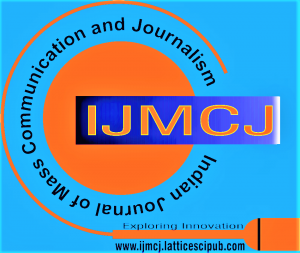The Portrayal of LGBTQIA+ Community, in Different Religions in India; A Comparative Analysis of Hindu, Muslim & Christian Scriptures
Nifil Bashid1, R. Rama Prabha2
1Nifil Bashid, Student, Department of Communication, PSG College of Arts and Science, Coimbatore (Tamil Nadu), India.
2R. Rama Prabha, Assistant Professor, Department of Communication, PSG College of Arts and Science, Coimbatore (Tamil Nadu), India.
Manuscript received on 21 April 2023 | Revised Manuscript received on 06 May 2023 | Manuscript Accepted on 15 June 2023 | Manuscript published on. 30 June 2023 | PP: 1-9 | Volume-2 Issue-4, June 2023 | Retrieval Number: 100.1/ijmcj.D1038062423 | DOI:10.54105/ijmcj.C1038.062423
Open Access | Editorial and Publishing Policies | Cite | Zenodo | Indexing and Abstracting
© The Authors. Published by Lattice Science Publication (LSP). This is an open access article under the CC-BY-NC-ND license (http://creativecommons.org/licenses/by-nc-nd/4.0/)
Abstract: The controversy surrounding the recognition and embrace of the LGBTQIA+ community is not unique to India. Despite the legalization of homosexuality in 2018, discrimination and marginalization against LGBTQIA+ individuals still persist in Indian society, especially within religious circles. Therefore, this research aims to examine the representation pertaining to the LGBTQIA+ people in Hindu, Islamic, and Christian religious texts, using comparative analysis methods to identify patterns and differences in the portrayal of LGBTQIA+ individuals in religious literature. Given the social and legal issues faced by the LGBTQIA+ community in India, it is essential to understand the root causes of prejudice and intolerance towards this group. Religious thoughts, expressions of faith and religious observances significantly influence societal perceptions of LGBTQIA+ individuals. Hence, this study involves a qualitative analysis of relevant religious texts, focusing on themes, metaphors, and attitudes towards non-heterosexual and homosexual identities. The research findings will provide insights into the convergence of religion and LGBTQIA+ identities in India, and may suggest ways to promote inclusion and tolerance towards this community.
Keywords: Gender, LGBTQIA+, Non- heterosexual, Queer Theory.
Scope of the Article: Social Science
